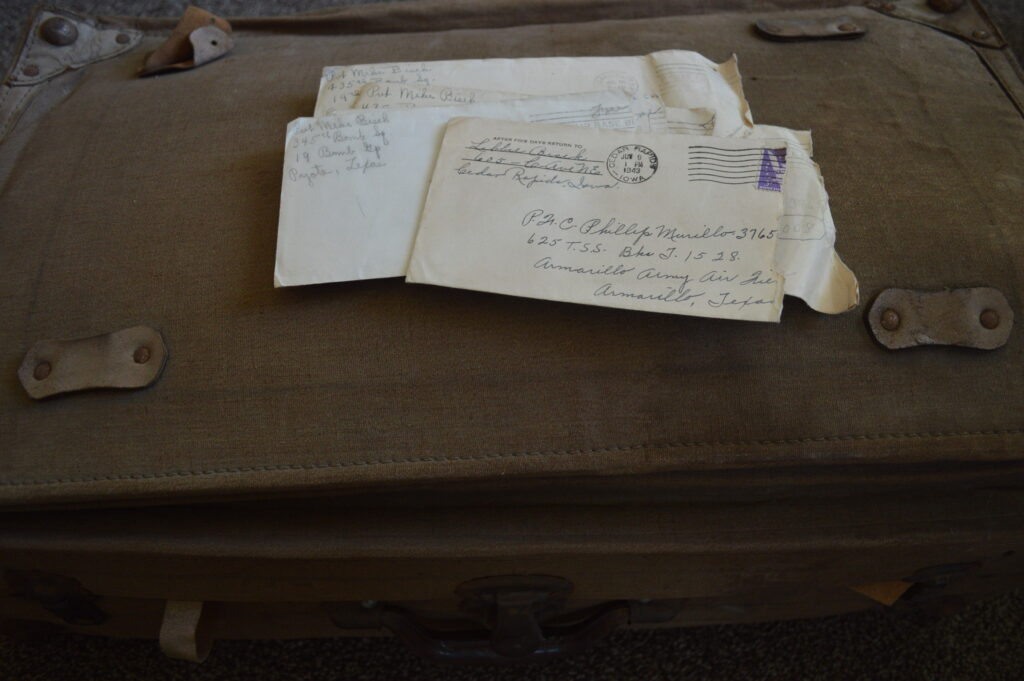
By Cindy Hadish/Homegrown Iowan
Monica Morley and her sister, Maria Hamilton, never met their uncle, who was killed in World War II before they were born, but a remarkable coincidence led the Cedar Rapids women to a close friend who had lived near their uncle and corresponded with him during the war.
Mike Bisek, 99, has been in the news lately, as efforts remain underway to see he is awarded the Purple Heart after being wounded by friendly fire in Nazi-occupied France in 1944.
Related: WWII veteran awaits word on Purple Heart
The two sisters heard about the U.S. Army Air Corps veteran around the same time they received their uncle’s Army suitcase, 78 years after his death. The suitcase – which had been in possession of a friend of the family – was full of letters and other keepsakes, including correspondence from Bisek and his mother to their uncle, Philip Murillo.
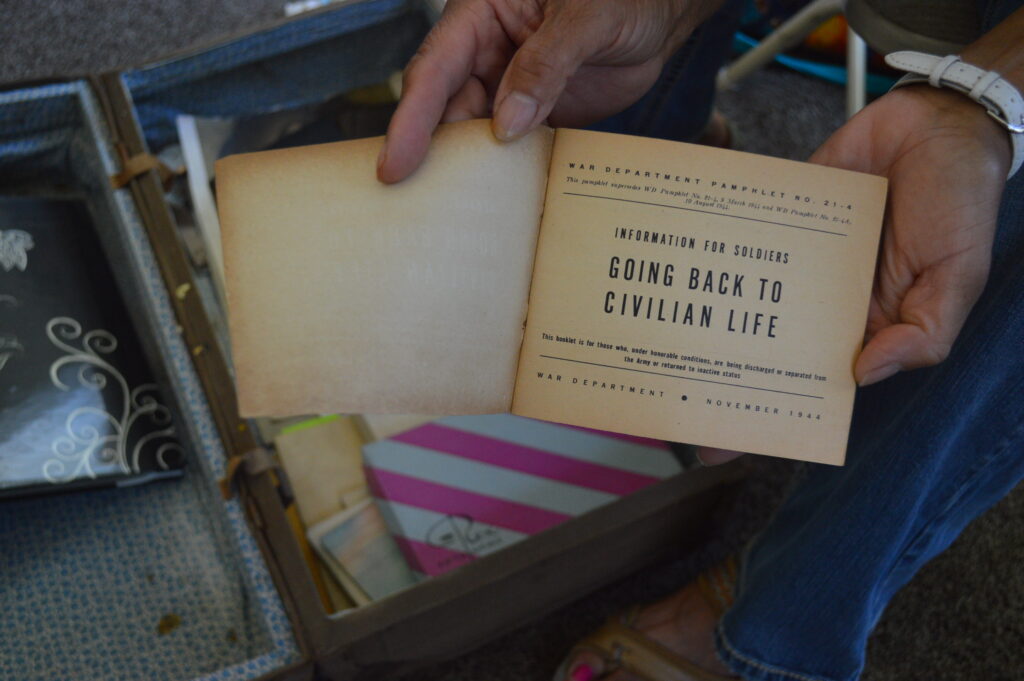
“I rec’d your most welcomed letter and I was sure glad to hear from you,” Bisek’s mother, Libbie, wrote to Murillo on June 8, 1943. “I always ask your dad about you boys whenever I see him.”
Bisek’s letters to Murillo used more colorful language and tended to focus on girlfriends and other subjects of importance to young men; always signed, “Your buddy, Mike.”
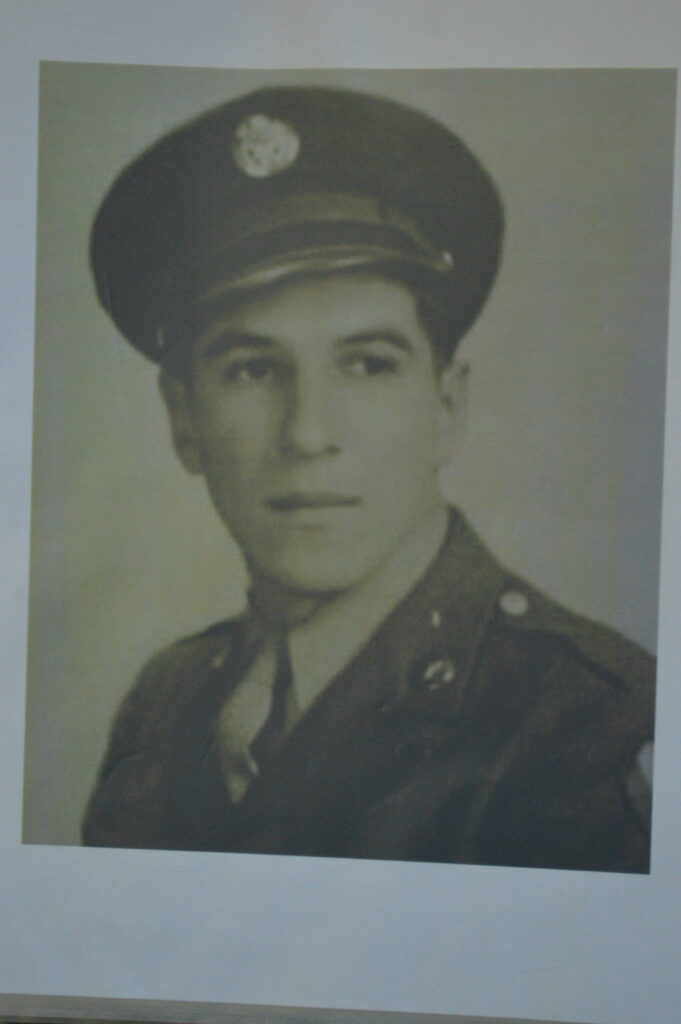
Murillo and Bisek both graduated from McKinley School in Cedar Rapids and lived near each other in the “Little Mexico” neighborhood, north of downtown. Bisek, who remains connected to his Czech heritage, and his mother, a single mom, lived in an affordable home near her job, within walking distance of Quaker Oats.
(Philip Murillo, shown in uniform)
A recent meeting between Murillo’s nieces and Bisek took the air of a family reunion, with name-dropping of neighbors remembered by all three.
Morley brought photos to see if Bisek could identify people and places, including one from a trip to Chicago to see if a young man in the photo was him, and Bisek showed photos to the two sisters and reminisced about his friend.
“Phil had a better head than I did. I think he was in the Honor Society,” he said of Murillo, then deadpanning, added, “I graduated second in my class. Second from the bottom.”
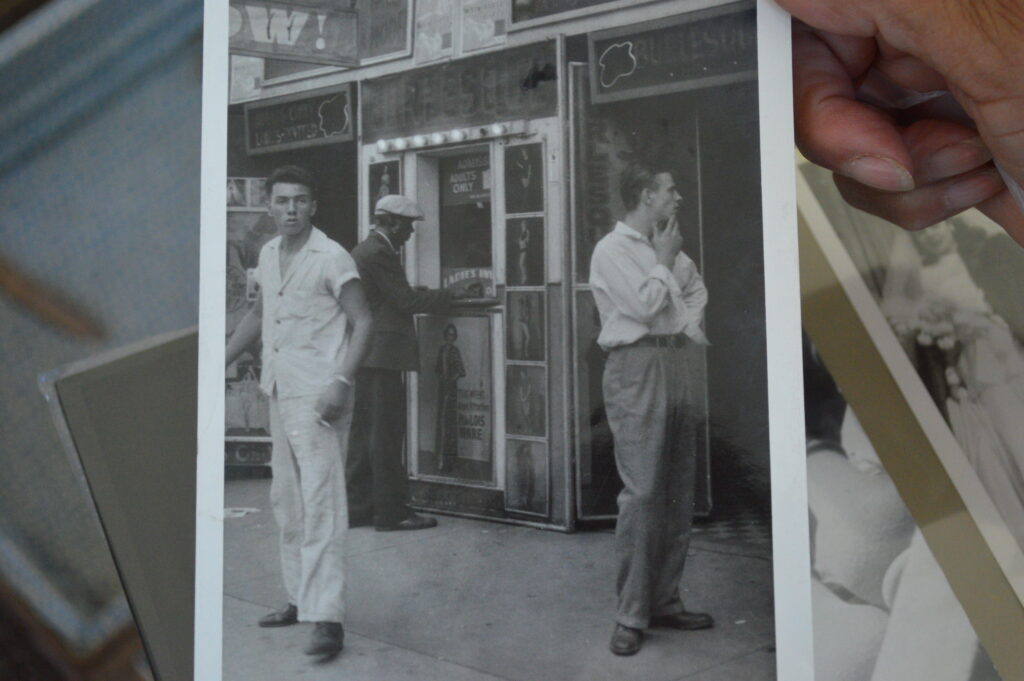
Bisek remembered when their father, Fidel “Pete” Murillo – Phil’s older brother – worked at a local hot dog joint. When he and Phil would visit, Pete would sneak two hot dogs onto their sandwich buns.
He last saw his friend in St. Petersburg, Florida, where he had traveled by train for basic training.
“I just happened to see Phil with a different group there in the mess hall and said ‘I’ll see you after we’re done eating,’” Bisek told Murillo’s nieces. “But then they marched us out, so I never did get to see him after that.”
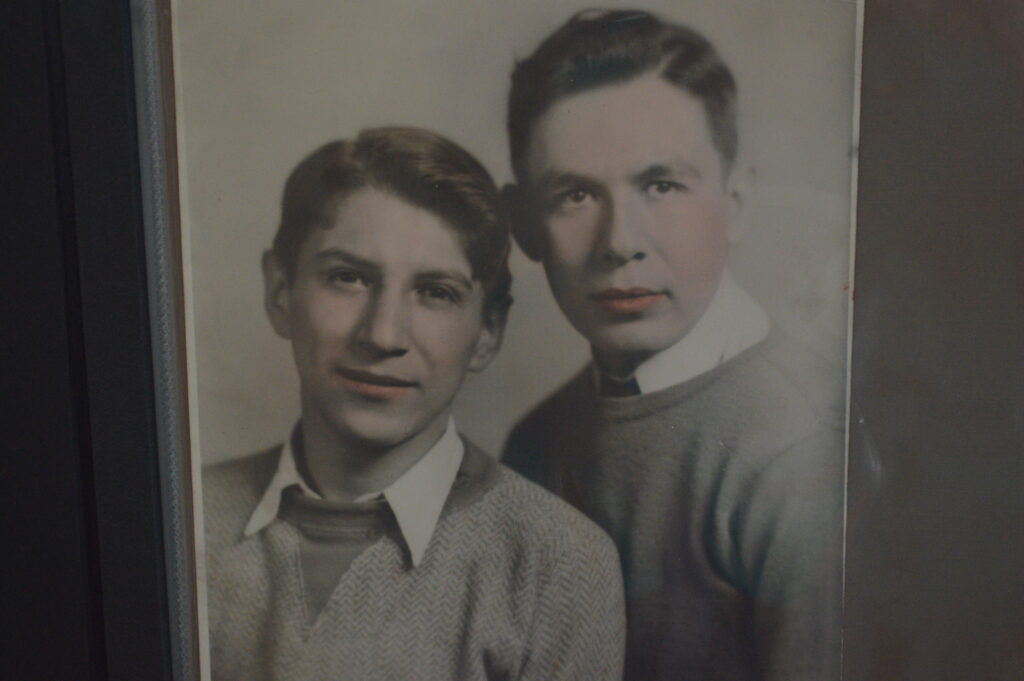
Murillo, an engineer and gunner, was on a B-17 bomber that ran out of fuel over the English Channel when it went down on July 7, 1944. He and three other airmen died in the crash, while five survived.
He was just 21.
Bisek, an Army Air Corps photographer/gunner and fellow crewmates also lost their plane, a B-24 bomber, but managed to bail out over Nazi-occupied France on July 19, 1944, just 12 days after Murillo’s plane went down.
He was shot in the leg by friendly fire during his time in France, and while he is more interested in seeing his military records corrected to reflect his wound, a friend is pursuing the Purple Heart for Bisek.
At Bisek’s Cedar Rapids home earlier this week, he, Morley and Hamilton shared stories for two hours of acquaintances and bygone times in Little Mexico, a neighborhood wiped out in the 1960s when Interstate 380 was built through Cedar Rapids.
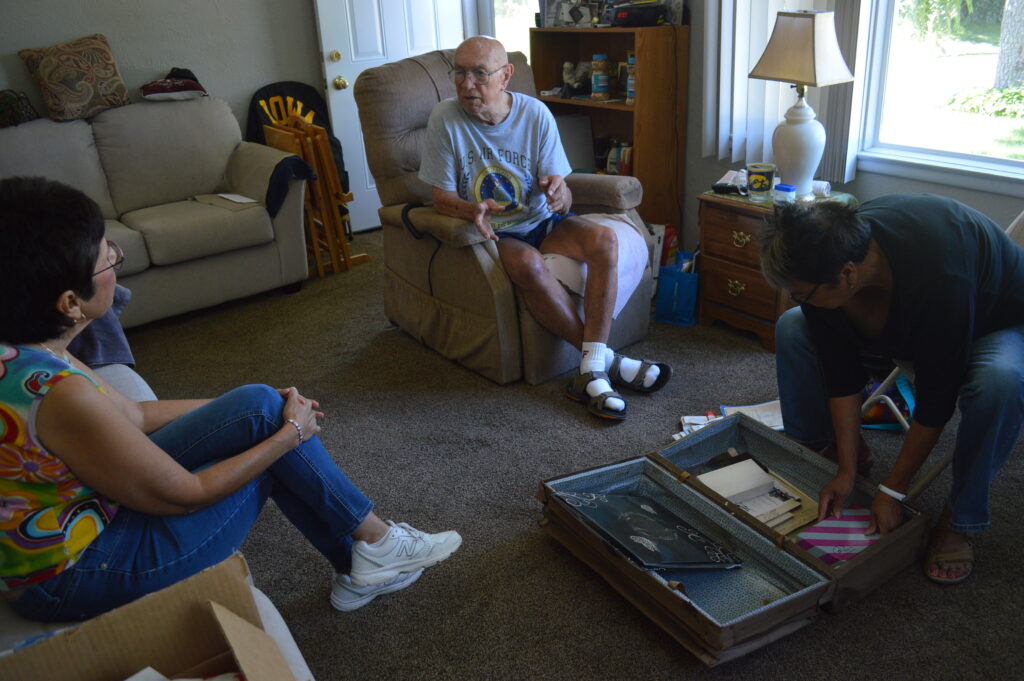
At the end of their visit, the sisters gave Bisek the letters he and his mother had written to their uncle, who would have turned 100 this summer.
Bisek’s mother’s letter to Murillo was particularly poignant when she wrote about looking forward to the day when both he and her son would return from their time in service.
“Will that be a happy moment in all the homes, I think, when we all get united again,” she wrote. “And all the world will be at Peace once more.”
More: Remains of sailor killed at Pearl Harbor laid to rest in Iowa
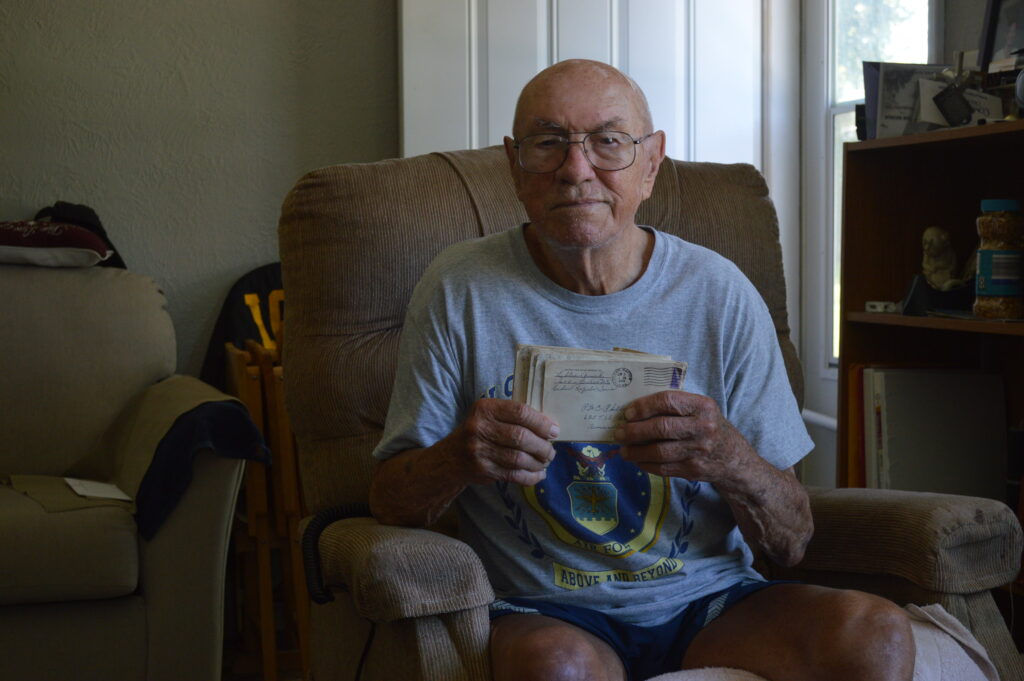
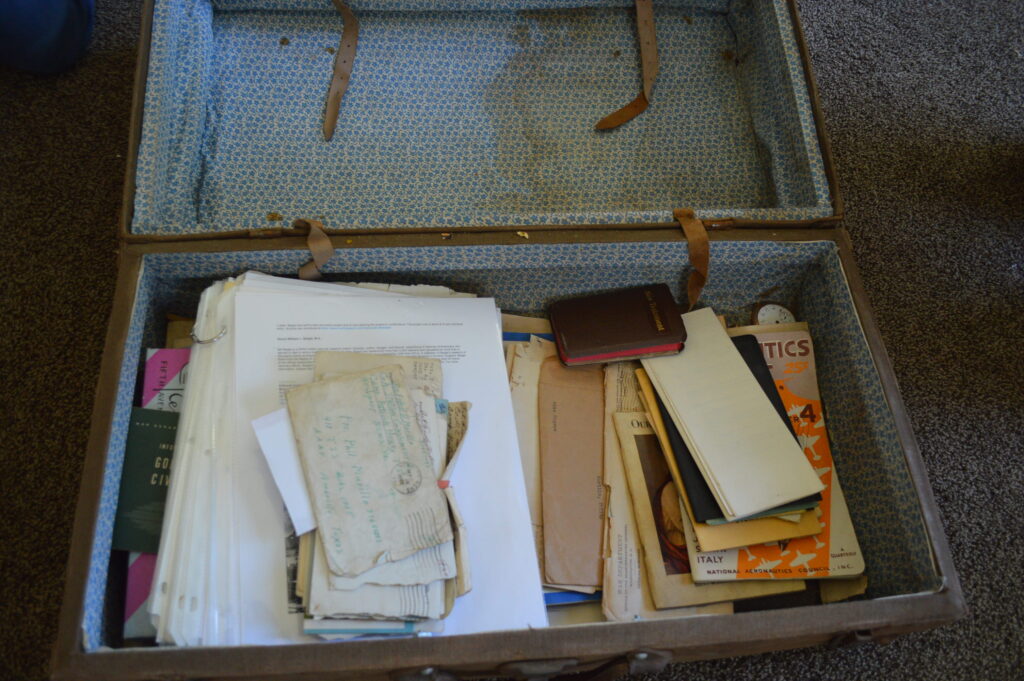
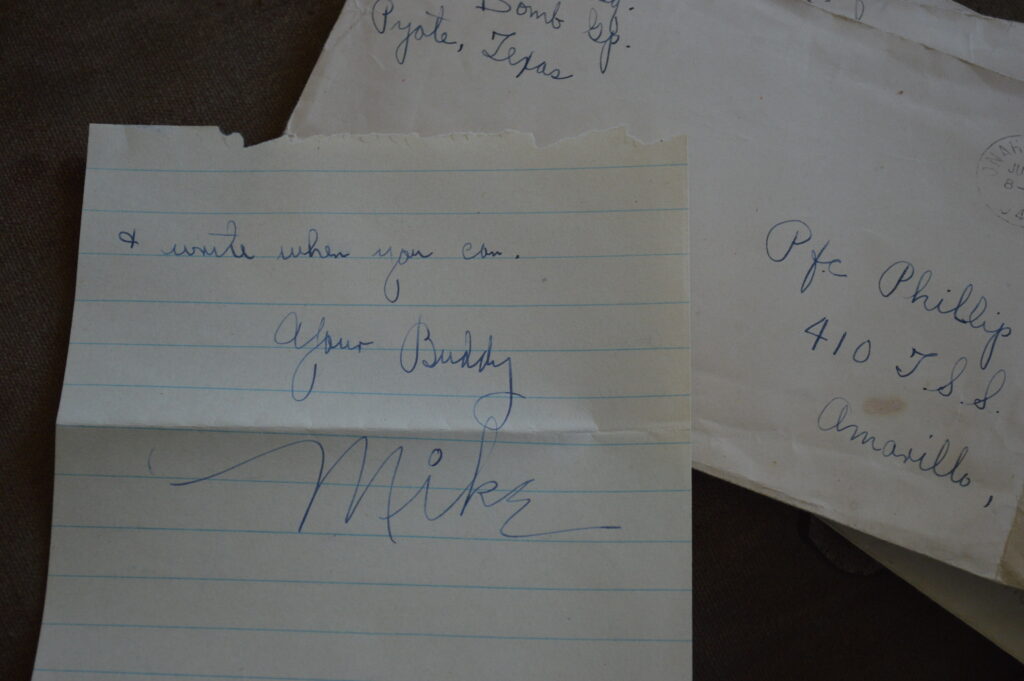
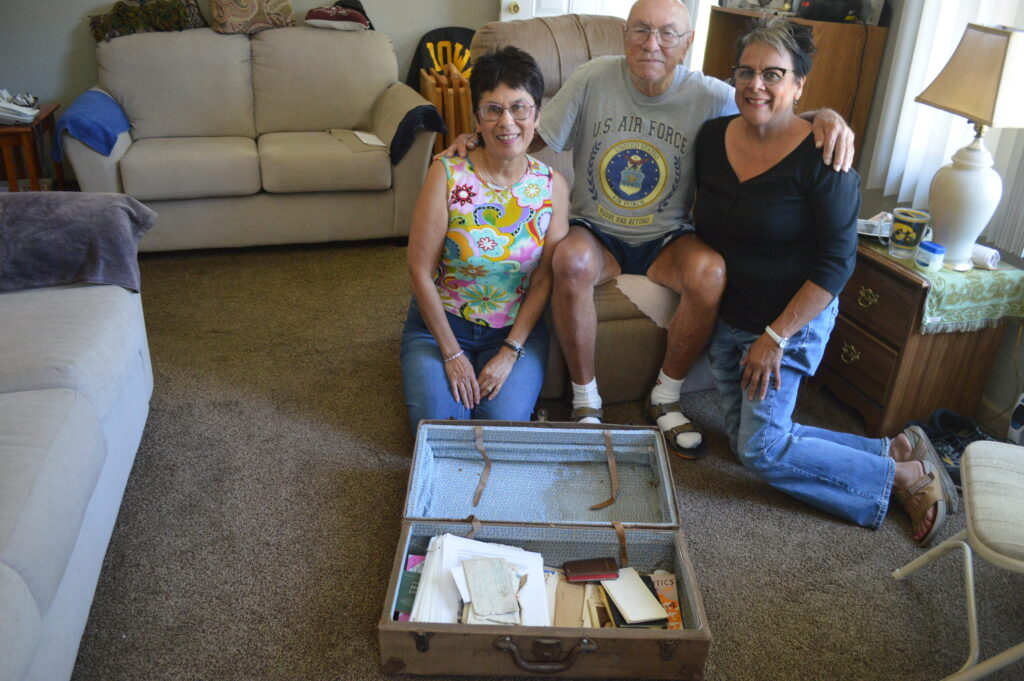

[…] MORE: See what two sisters returned to Mike Bisek from WWII. […]